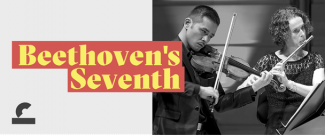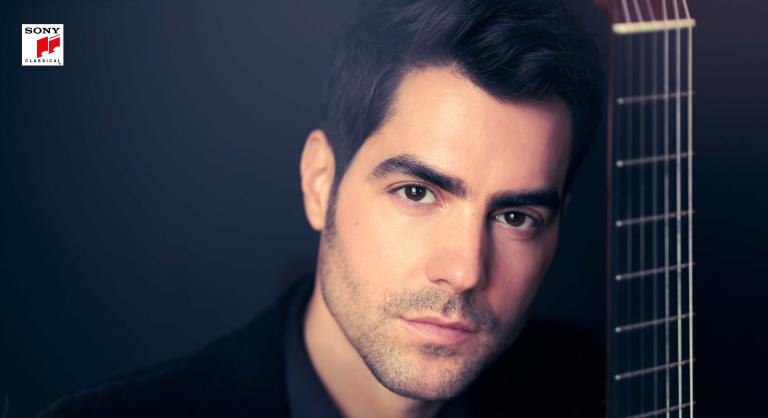Concert Review: Psycho – The Music Of Bernard Herrmann / Omega Ensemble

Psycho – The Music Of Bernard Herrmann
Omega Ensemble
Utzon Room, Sydney Opera House
February 28, 2016
The Omega Ensemble launched its 2016 season with Psycho – the music of Bernard Herrmann last weekend.
In a happy co-incidence I came upon a feature in Classical – music.com the online version of BBC Music Magazine. Production editor Neil McKim selects six – just six – of what he thinks are the finest movie soundtracks of all time. The merits of this list could be debated for eternity. For our purposes it includes Bernard Herrmann’s (1911-1975) atmospheric score to Alfred Hitchcock’s cinematic masterpiece Psycho (1960).
The ensemble’s programming was light and refreshing. Herrmann generated an abundant portfolio of vocal and instrumental music separate to his film and radio work. His substantial experience as a writer of music for radio plays and film meant that he had honed the skill of achieving many moods and effects with great economy of instrumentation and musical language. He was able to enhance the drama with his music without intruding on it.
The Omega Ensemble opened their programme with Herrmann’s Echoes for String Quartet, a deeply introspective and personal one-movement work, written in later life (1965). The multi-nation string quartet comprising violinists Catalin Ungureanu and Airena Nakamura, violist Neil Thompson and cellist Teije Hylkema delivered an accomplished performance that was both soulful and technically commanding.
And then the piece that I suspect most were waiting to hear – the Psycho Suite for Strings, also composed in 1965. Though brief, it is powerful. A sense of unease pervades the soundtrack and here it was in its full horror – the shrieking, the screams, the stabbing; the racing heartbeat, the pulsing of life ebbing from the body; dissonance, piercing harmonics and strumming; the lower strings ascend upwards with menace while the violins slide down into hell. Where Hitchcock was able to tap into our subconscious with cinematic devices, Herrmann achieved it with music and the ensemble did it full justice.
Herrmann decided on an ensemble of strings for the score of Psycho which he thought would complement the starkness of Hitchcock’s black and white photography. But Hitchcock had other plans. Apparently he intended that the scene be unaccompanied by music. It was at Herrmann’s insistence that Hitchcock acquiesced to the scoring and today we have the legacy of one of the most iconic moments in cinematic and soundtrack history.
Artistic Director of the Omega Ensemble and clarinetist David Rowden joined the string players for Herrmann’s clarinet quintet Souvenirs de Voyage (1967). This was a luscious and romantic piece performed with great polish and sensitivity. The panoramic water view offered by the Utzon Room of the Sydney Opera House with its spectacular sense of being suspended over the waves was a perfect vista to contemplate. The plaintive opening motif played by the clarinet set the mood and was taken up by various other parts. The musicians translated the unique features of Herrmann’s style, his frequent use of ostinato, dissonance and chromaticism, into the emotions of travel – the restlessness and searching, tranquility and a sense of arrival. There were languid waltz-like swirls in a Venetian salon and a sense of timelessness underscored by the dreamy though cohesive rubato with which the ensemble performed the final movement.
Bernard Herrmann was classically trained in composition and conducting at New York University, then at the Juilliard School of Music, which he left early, finding it too conservative. It was during his studies with Percy Grainger, it is said, that Herrmann discovered the range and diversity of musical devices available to the contemporary composer aptly demonstrated in the music we heard in this concert. Hermann’s early jobs included composing incidental music for radio plays at CBS, many of which were directed by Orson Welles. He ultimately wrote his first film score for Welles – Citizen Kane.
Herrmann composed for Fox Studios as well but it was his partnership with Alfred Hitchcock at Paramount and MGM between 1955 and 1964 which stand out – Vertigo (1958), North by Northwest (1959) and Psycho (1960). Herrmann was nominated for and won many cinematic awards on either side of the Atlantic. Notably, he won the Oscar for Best Score in 1942 for All That Money Can Buy; his score for Taxi Driver won a BAFTA in 1977 and the Los Angeles Film Critics Association Award for Best Music in 1976.
Finally, the blinds came down as we entered the dark side with Nicole Brady’s Postlude. The quintet with Rowden on clarinet and amplified bass clarinet was joined by actor Kendall Goddard with the soundscape by creative technologist Ben Carey. As the acoustics swelled, Goddard walked on to recite her text. The text was initially easy to understand but once the instruments joined in, her voice was inaudible to me and a printed version of the text would have been helpful.
Well done to the ensemble for bringing us so effectively, the music of Bernard Herrmann and reminding us of his talents beyond the cinema screen.
Shamistha de Soysa for SoundsLikeSydney©






